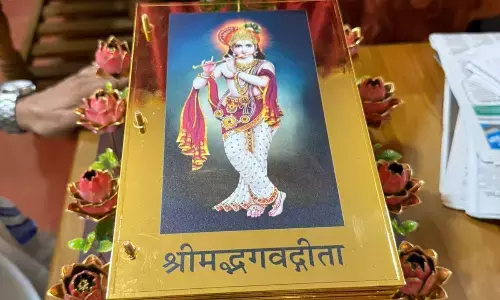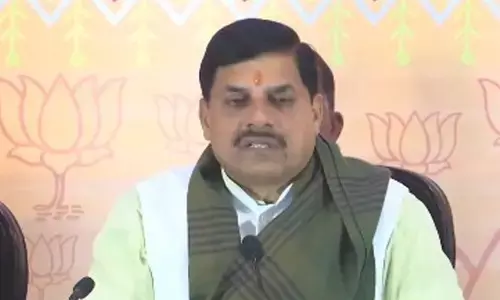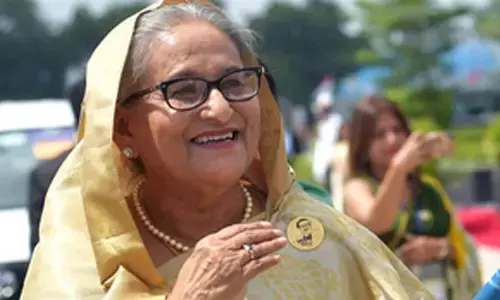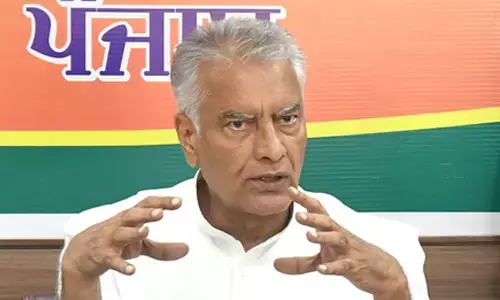Role of Parliament needs to be strengthened
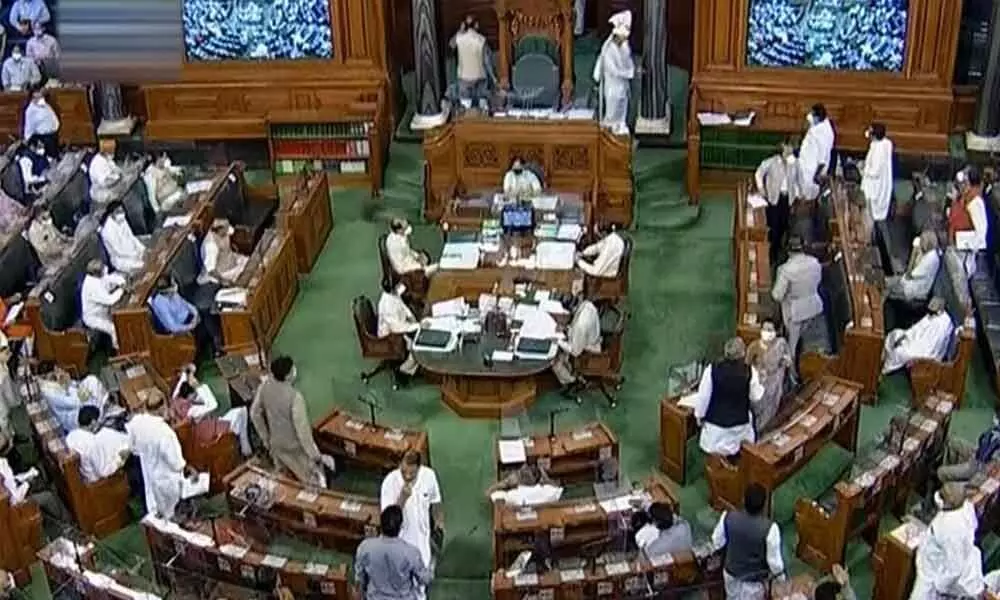
Representational Image
Chief Justice of India, N V Ramana, speaking at a recent event, lamented “the sorry state of affairs”, leading to laws being passed by Parliament without quality debate
Chief Justice of India, N V Ramana, speaking at a recent event, lamented "the sorry state of affairs", leading to laws being passed by Parliament without quality debate; the purpose of legislation not being clear and the consequent creation of litigation causing inconvenience and loss to the general public.
Alexander Pope famously said, "for forms of government let fools contest - that government is best which governs the best". With great foresight and vision, the makers of our Constitution chose the democratic form of governance and dressed a document which represented a rich amalgam of the best features of similar documents from many countries including the UK and the USA, to name just two.
As the nation celebrates the 75th year of its independence from colonial rule, it would appear to be a good time to sit back and look at the overall picture of the manner in which the body politic of our country has fared.
Starting with the bloodless independence movement based on the 'Ahimsa' theme, through the multi- coloured revolutions in the agriculture sector that saw the country shed the image of leading a "ship to mouth" existence and achieve, not only self-reliance, also but embarrassing surpluses; the performance of constitutional and statutory institutions such as the Supreme Court, the Union Public Service Commission and the Election Commission, India has many significant achievements to its credit. These cover such multifarious fields of human endeavour as the fine arts, sports and games, science and technology, exploration and adventure and establishment of Centres of Excellence in higher education.
But, when the coin is turned over, however, a different picture appears altogether. Hunger, poverty, deprivation, exclusion, intolerance, and fear paradigm continue to stalk the paradigm growth and development. Children are sold as commodities, women killed in the name of honour, and farmers are committing suicides following distress in the farm sector.
Now, therefore, is the time neither for resting on one's oars, letting one's hair down and putting one's feet up; nor for despair, or anxiety, about the future. No doubt, the past presents a mixed bag of gratification and disappointment. And the way the people of the country have demonstrated their ability to face and overcome adversity and challenges, however, gives one the confidence that, given good political leadership and sound administration, the country would appear to be well on its way to prosperity and stability in the near future.
The most striking features of the Indian Constitution are doctrine of separation of the powers of the three wings of state, backed by provisions for checks and balances, a separate chapter on fundamental rights and a carefully crafted dispensation of distribution of powers and functions, as between the Union and the States.
The arrangement is such as to ensure a judicious combination of autonomy for, the sates with allowing for sufficient authority for enabling the centre, to address the concerns of external and internal security, as well as economic stability.
Over time, and quite naturally, each wing has had, perforce, to perform functions pertaining to another. Civil servants, while functioning as magistrates, for instance, perform judicial functions. Courts of law, notably the Apex Court, have, on occasions, delivered verdicts amounting not merely to legislation, but, as in the case of the Kesavananda Bharati and Golak Nath judgments, even amending the Constitution.
They have also frequently taken it upon themselves to issue directions about administrative functions such as clearance of garbage, use of eco-friendly fuels for public transport, and supervision of investigations of criminals and civil cases by the agencies concerned.
Members of Parliament, through the holding of offices such as the Chairmen of Public Sector Enterprises, through the MP – LADS scheme which provides them authority and funds to sanction developmental programmes, and participating in the choice of beneficiaries for grassroot level developmental programmes, have been exercising functions which rightly belong to administrators and elected representatives of local bodies.
All this can be legitimately put down to the process of the system adjusting itself robustly to the demands of change. Certain issues, however, have begun to cause concern. While this is true of all three wings, it is about the functioning of Parliament and state legislatures of the country that we shall be looking at in this article.
The recently concluded monsoon session of Parliament was the fourth consecutive session that ended ahead of its original schedule, clearly implying that a large number of important issues remained unaddressed. It can, in fact, safely be said that Parliament hardly functioned, with both Houses suffering frequent disruptions and the government and opposition parties rarely finding common ground on topics to be discussed. That the Lok Sabha utilised a mere 19 per cent of the allotted time and the Rajya Sabha only 26 per cent, are tell-tale numbers. An overwhelming majority of the bills was passed without discussion.
While the Lok Sabha discussed no policy issue at all, Rajya Sabha spent a few hours only on the Covid – 19 situation. The question hour hardly worked and a large supplementary budget was passed in less than 10 minutes with not a single member speaking on it.
And, strangely enough, the refrain, of the ruling party being described as a 'dictator' and the opposition describing itself as 'democratic', repeats itself, no matter who is on which side! What is even more amusing is that leading/robust political figures have defended stalling of the proceedings of the Houses as a legitimate part of the duties enjoined upon them, to uphold the functioning of the Constitution, and as sending a message and correcting a wrong!
Another disappointing, albeit feature of recent origin, is the reluctance of Parliament to refer bills to Committees, thus precluding expert scrutiny and denying an opportunity to stakeholders and government officials to understand the implications.
Quite apart from the question of efficacy in functioning certain fundamental issues also remain to be addressed. One of these, surely, is the continued reluctance, on the part of Parliament, to codify the privileges of its members. Needless to say, the absence of such a code hampers healthy and just criticism of the conduct of the Houses as well as the Members, a situation not conducive to the furtherance of democratic principles.
A large number of suggestions have been made for the improvement, of the functioning of Parliament and legislatures by bodies namely the All India Whips Conference and All India Presiding Officers' Conference, for which events are held periodically in different parts of the country.
Some measures that could surely lead to improved functioning of Parliament and the legislatures, and also aid and assist the Members thereof, to be more effective in performance, are creating a system of research support to the members and making full use of the Committee system,
Events of the last three decades have served to highlight the need for extremely close and expert scrutiny of the functioning of the executive. While watchdog agencies, such as the Lokpal and Lokayuktas, and investigation agencies at the national and state-level, are no doubt there to do their bit, it can hardly be gain said that the role of Parliament, as the primary wing of state apparatus, entrusted with the sacred duty of supervising the function of the executive, needs to be strengthened, and supported. Whatever needs to be done in this direction should receive the utmost priority.
(The writer is former Chief Secretary, Government of Andhra Pradesh)
(The opinions expressed in this column are that of the writer. The facts and opinions expressed here do not reflect the views of The Hans India)


